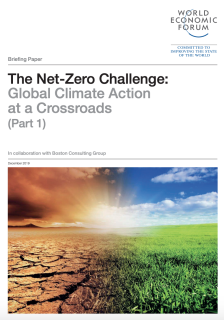
Since the historic Paris Agreement was drafted in 2015, progress on climate action has been limited at best. Nations are still far from reaching the emissions trajectory needed to ensure that global warming stays within safe limits and only 67 countries—none of which are the top five emitters—have committed to the goal of achieving net-zero carbon dioxide emissions. Moreover, most countries with this commitment have not enacted sufficiently robust policies to attain the emission reductions required.
While the risks of inaction are mounting, it is still possible to prevent the worst effects of global warming. The costs of abatement are falling and the technological solutions needed to decarbonise economies are available.
The paper is the first in a two-part series on The Net-Zero Challenge, which examines what corporations, governments, and civil society have achieved since 2015 and assesses the current state of global climate action. While there are clear signs of incremental progress, climate action needs to move at a much greater scale and faster pace. Key actions recommended include:
- Corporations can accelerate individual action and commit to meaningful short- and long-term absolute emission reductions, as well as engage in collaborations along value chains or with industry peers.
- Investor action can enable transparency and support long-term decarbonisation plans.
- Governments can unilaterally enact national regulation to reduce emissions immediately.
- Individuals need to drive climate action in their roles as consumers, voters, leaders, and activists.
